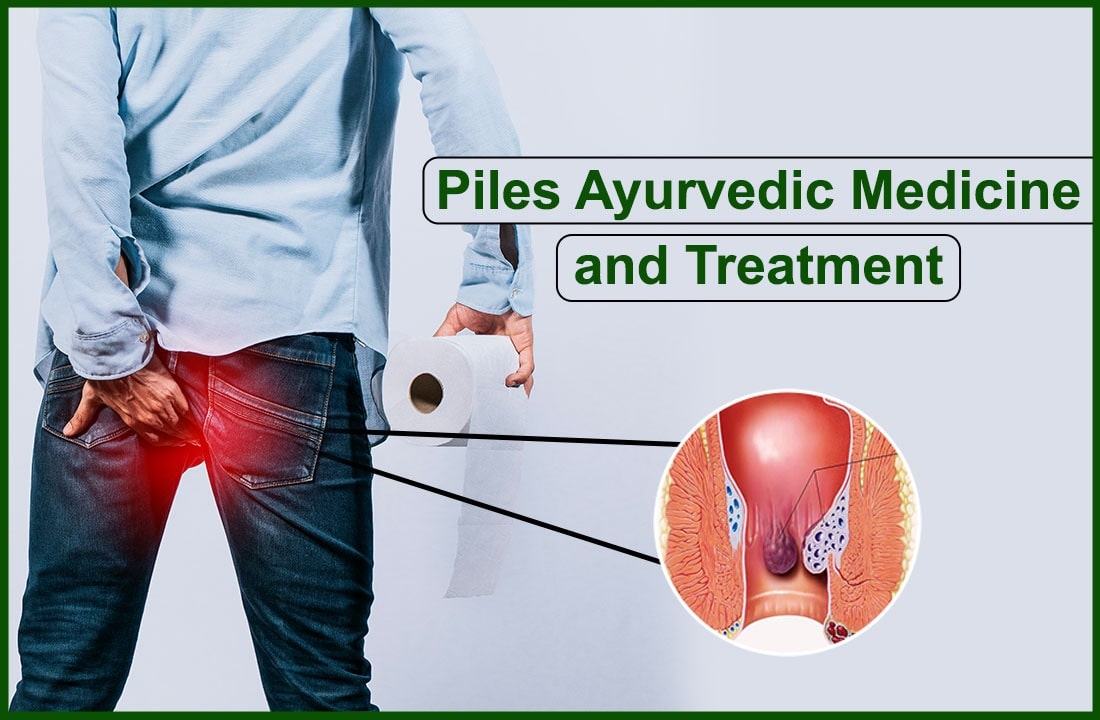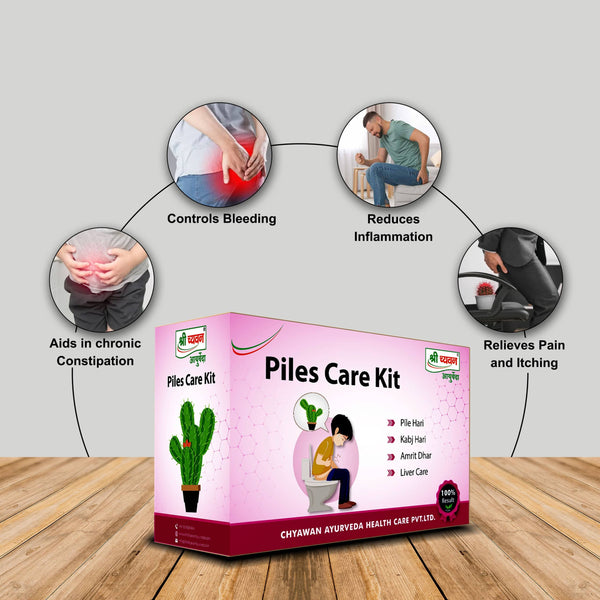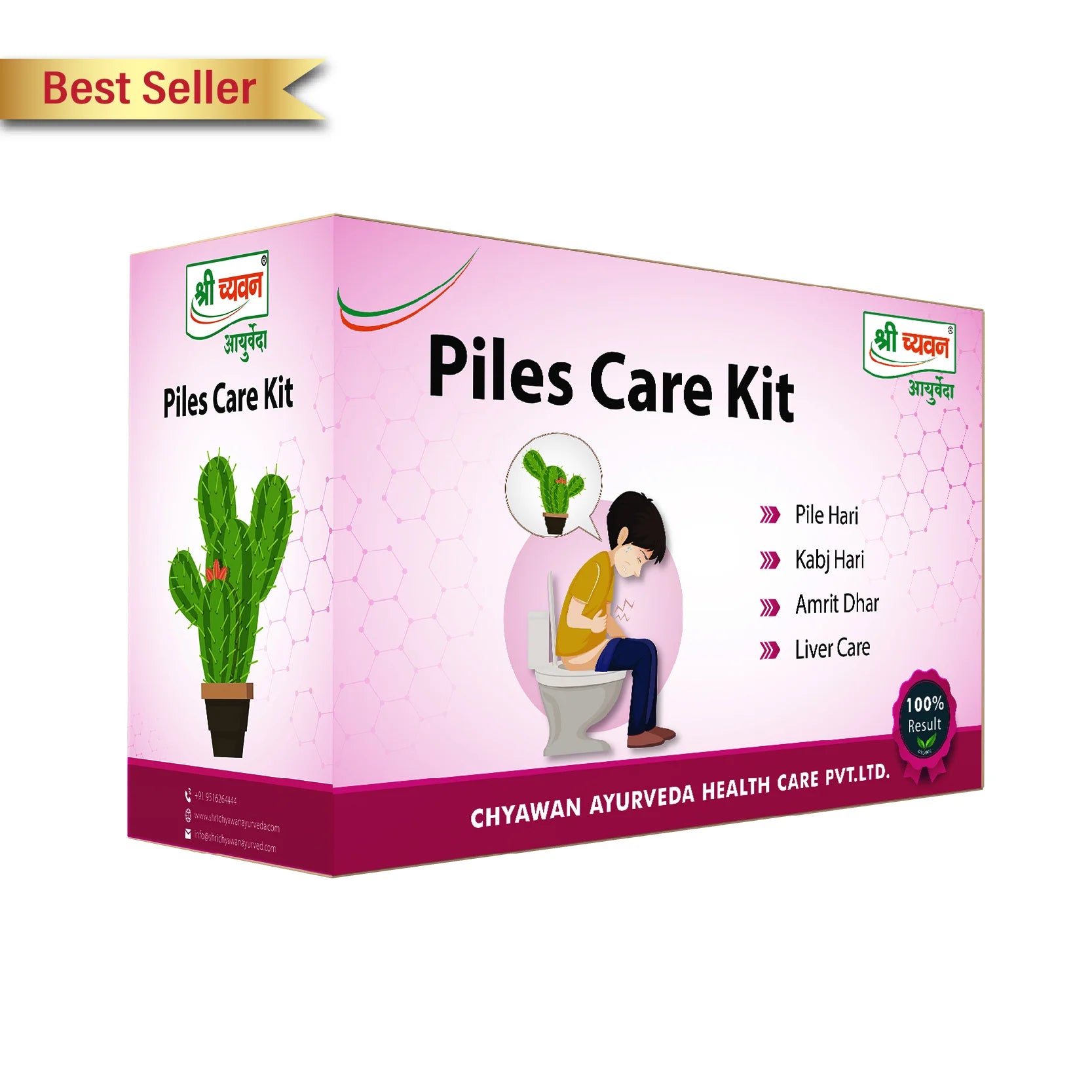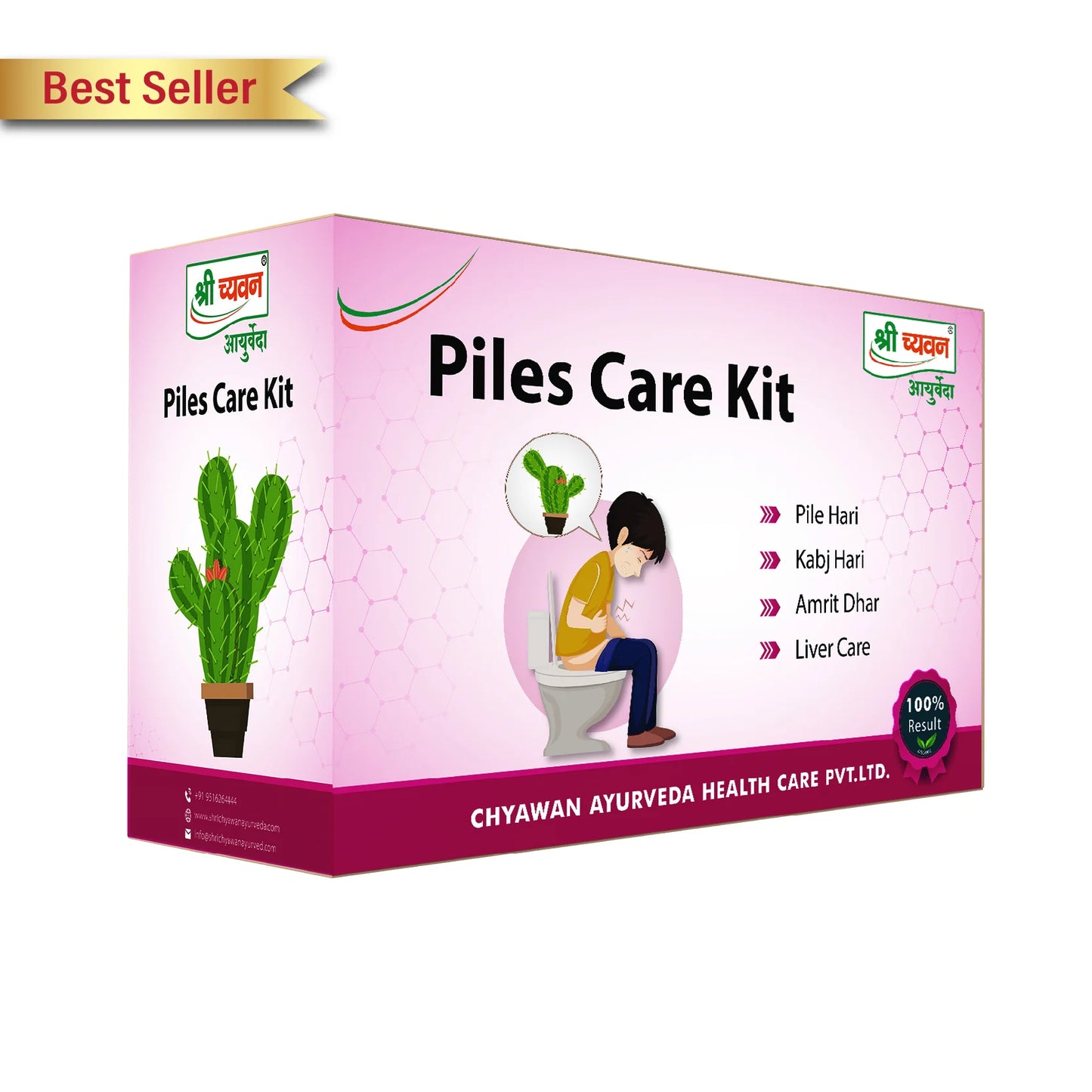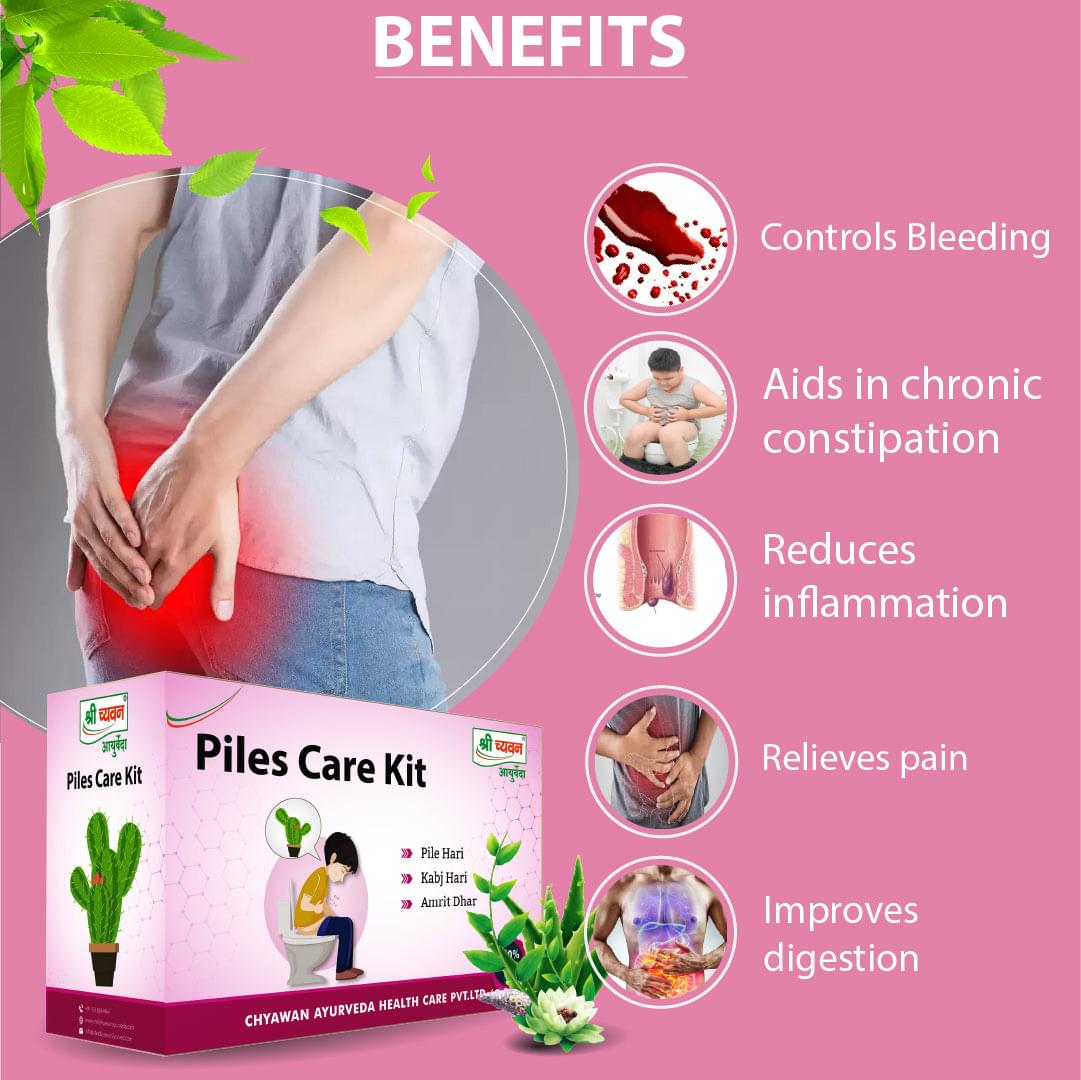In today's fast-paced world, where stress and anxiety have become a part of our daily lives, maintaining good mental health is of paramount importance. One health issue that often goes hand in hand with stress is piles, a painful and uncomfortable condition that affects many. While modern medicine offers various treatments for piles, Ayurveda, the ancient system of holistic healing from India, offers a unique perspective on how to address this issue while also promoting mental well-being.
Understanding Piles (Haemorrhoids) from an Ayurvedic Perspective:
Ayurveda sees health as a balance between the three doshas: Vata, Pitta, and Kapha. Piles, known as "Arshas" in Ayurveda, are primarily associated with imbalances in the Pitta dosha, which governs digestion and metabolism. According to Ayurveda, the following factors contribute to the development of piles:
-
Excessive Heat: An increase in Pitta dosha leads to an accumulation of heat in the anal region, causing inflammation and discomfort.
-
Poor Digestion: Weak digestion and constipation can aggravate piles as they lead to the accumulation of undigested food and toxins in the body.
- Sedentary Lifestyle: Lack of physical activity and prolonged sitting can slow down digestion and contribute to the development of piles.
Causes and Symptoms of Piles (Haemorrhoids):
Piles, also known as haemorrhoids, are swollen and inflamed blood vessels in the rectum and anus. They can be painful and uncomfortable. There are several factors that contribute to the development of piles, and they can vary from person to person. Below are some common causes and symptoms of piles:
Causes:
-
Straining During Bowel Movements: One of the most common causes of piles is excessive straining during bowel movements. This can occur due to constipation, hard stools, or spending too much time on the toilet.
-
Chronic Constipation or Diarrhoea: Irregular bowel habits can lead to piles. Chronic constipation puts pressure on the veins in the rectum, while chronic diarrhoea can irritate the anal area.
-
Pregnancy: The increased pressure on the pelvic veins during pregnancy can lead to the development of piles. Additionally, hormonal changes during pregnancy can also contribute.
-
Obesity: Being overweight or obese can increase the pressure on the rectal veins and raise the risk of developing piles.
-
Sitting or Standing for Prolonged Periods: People who sit or stand for long durations, such as office workers or truck drivers, may be more prone to developing piles due to increased pressure on the anal area.
-
Low-Fibre Diet: A diet low in fibre can lead to constipation, which is a common cause of piles. Fibre helps soften the stool and aids in regular bowel movements.
- Genetics: Some individuals may have a genetic predisposition to developing piles.
Symptoms:
-
Painless Bleeding: The most common symptom of piles is rectal bleeding during or after bowel movements. The blood is typically bright red and seen on the toilet paper or in the toilet bowl.
-
Itching and Irritation: Piles can cause itching and discomfort in the anal area. This is often due to mucus discharge from the inflamed veins.
-
Pain or Discomfort: Depending on the size and location of the piles, individuals may experience pain or discomfort during bowel movements or when sitting for extended periods.
-
Swelling or Lumps: Piles can sometimes form external lumps around the anus, which can be felt and may cause pain or discomfort.
-
Incomplete Bowel Movements: A feeling of incomplete bowel movements, even after passing stool, can be a symptom of piles.
- Anal Leakage: Mucus discharge from the anus can occur with piles, leading to a feeling of wetness or leakage.
Connection between Piles & Mental Health:
The connection between piles (haemorrhoids) and mental health is an often-overlooked aspect of this medical condition. While piles primarily affect the physical health of an individual, their symptoms and the stress associated with them can have a significant impact on mental well-being. Here's how piles and mental health are connected:
-
Pain and Discomfort: Piles can be extremely painful, especially when they become inflamed or thrombosed (blood clot forms within them). This pain can lead to increased stress and anxiety as individuals grapple with on-going discomfort.
-
Chronic Condition: Piles can be chronic, with symptoms that come and go over time. The chronic nature of the condition can lead to persistent stress and frustration as individuals struggle with recurring discomfort and inconvenience.
-
Embarrassment and Social Isolation: Many people with piles may feel embarrassed or self-conscious about their condition. They might avoid social situations or activities they enjoy due to fear of discomfort or embarrassment, which can contribute to feelings of isolation and depression.
-
Disruption of Daily Life: Piles can disrupt daily routines and activities, making it difficult to concentrate at work or engage in physical activities. This disruption can lead to feelings of frustration and helplessness, affecting mental health.
-
Sleep Disturbances: Pain and discomfort from piles can interfere with sleep. Sleep disturbances can result in irritability, mood swings, and decreased ability to cope with stress.
-
Anxiety about Symptoms: Individuals with piles may experience anxiety related to their symptoms, such as fear of bleeding during social or work-related events. This anxiety can exacerbate the physical symptoms and impact overall mental well-being.
-
Dietary Restrictions: Some dietary changes recommended for managing piles, such as increasing fiber intake and avoiding certain foods, can be challenging to implement. The stress of adhering to these dietary restrictions can affect mental health.
- Chronic Stress: Dealing with a chronic condition like piles can lead to chronic stress, which, over time, may contribute to the development or exacerbation of mental health conditions such as anxiety and depression.
It's important to recognize that there is a bidirectional relationship between physical and mental health. While piles can impact mental health, mental health issues, such as chronic stress and anxiety, can also contribute to the development or worsening of physical health conditions, including piles.
Managing the Connection:
Managing the connection between piles and mental health involves a comprehensive approach:
-
Ayurvedic Treatment: Seek advice and ayurvedic treatment for treating Piles to alleviate physical symptoms and discomfort.
-
Stress Management: Practice stress-reduction techniques such as mindfulness, meditation, and deep breathing exercises to cope with the emotional impact of piles.
- Support Network: Talk to friends, family, or a mental health professional about your feelings and concerns related to piles. A supportive network can provide emotional relief.
-
Diet and Lifestyle: Follow recommended dietary and lifestyle changes to manage piles effectively, which can help reduce stress related to the condition.
- Psychological Support: If needed, consider counselling or therapy to address anxiety or depression that may be exacerbated by piles.
Recognizing and addressing the connection between piles and mental health is crucial for overall well-being. Seeking both physical and emotional support can lead to better management of the condition and improved mental health outcomes.
Piles Medicine in Ayurveda
Our team of experienced ayurveda experts have formulated an Ayurvedic Medicine for Piles - Piles Care Kit for natural treatment of Haemorrhoids/ Piles. All our products are prepared using best quality herbs and strictly follow the principals of Ayurveda. All our products are 100% Pure, Natural and Safe to be used and do not cause any side-effects.
The Piles Care Kit consists of:
- Pile Hari Vati: It is by far the best piles tablet which helps to heal inflammations and soothe pain and discomfort. It also has laxative properties that induce peristaltic movements, thus making the process of evacuating of bowels pain-free.
Ingredients: It consists of- Ambahaladar, Kalijiri, Rasot, Kali mirch, Har, Methatis, Kaharvapisti, Motipisti, Amla, Methi, Variyali, Bolbaddhras, Kaharvapisti.
How to use: One tablet every day in the morning and evening, post breakfast and snacks respectively.
- Kabj Hari Churn: This helps in a lot of stomach related issues like gas, constipation and abdominal pain.
Ingredients: It consists of Harde, Sonth, Mulethi, Baheda, Hing, Variyali, Amaltas, Black Salt, Black Pepper, Amla.
How to use: Mix 1-2gm of this churn with half cup of water, consume every day before going to bed.
- Nikunj Amrit Dhar: It helps to soothe the burning or itching sensation near the anal or the rectum area.
Ingredients: It consists of Sat Ajwain, Sat Pudina, Kapoor, essential oils and clove oil.
How to use: Take 4-5 drops on a cotton ball and apply on the affected area twice a day.
Benefits of Piles Treatment through Ayurveda:
Treating piles (haemorrhoids) through Ayurveda offers several potential benefits, as Ayurvedic approaches focus on holistic healing and natural remedies. Here are some of the benefits of treating piles through Ayurveda:
-
Holistic Approach: Ayurveda considers the whole person, not just the physical symptoms. It takes into account individual constitution (Prakriti), lifestyle, and mental well-being, providing a holistic approach to healing.
-
Natural Remedies: Ayurvedic treatments for piles typically involve the use of natural ingredients, herbs, and dietary changes. This reduces the risk of side effects often associated with pharmaceutical drugs.
-
Balancing Doshas: Ayurveda believes that imbalances in the doshas (Vata, Pitta, Kapha) can contribute to the development of piles. Ayurvedic treatments aim to balance these doshas, which can promote overall health and prevent the recurrence of piles.
-
Improved Digestion: Ayurveda places a strong emphasis on digestion and the Agni (digestive fire). By improving digestion through dietary modifications and herbal remedies, Ayurveda can help prevent constipation, a common cause of piles.
-
Reduced Inflammation: Ayurvedic herbs and therapies can help reduce inflammation and swelling associated with piles, providing relief from pain and discomfort.
-
Enhanced Immunity: Some Ayurvedic treatments may boost the body's immunity, helping it fight off infections or complications related to piles.
-
Prevention of Recurrence: Ayurveda not only treats the symptoms but also aims to address the root causes of piles. By adopting Ayurvedic lifestyle recommendations, individuals may reduce the likelihood of future flare-ups.
-
Personalized Treatment: Ayurvedic treatments are highly individualized, considering a person's unique constitution and imbalances. This personalized approach can lead to more effective and tailored treatment plans.
-
Minimal Side Effects: Ayurvedic treatments typically have minimal side effects when used correctly and under the guidance of a qualified Ayurvedic practitioner.
-
Emphasis on Mental Well-Being: Ayurveda recognizes the connection between mental and physical health. It often includes stress-reduction techniques, meditation, and mindfulness practices to promote mental well-being, which can be particularly beneficial for individuals dealing with the emotional impact of piles.
- Complementary Therapies: Ayurveda may complement conventional medical treatments for piles. In some cases, Ayurvedic therapies can be used alongside allopathic treatments to enhance overall recovery.

